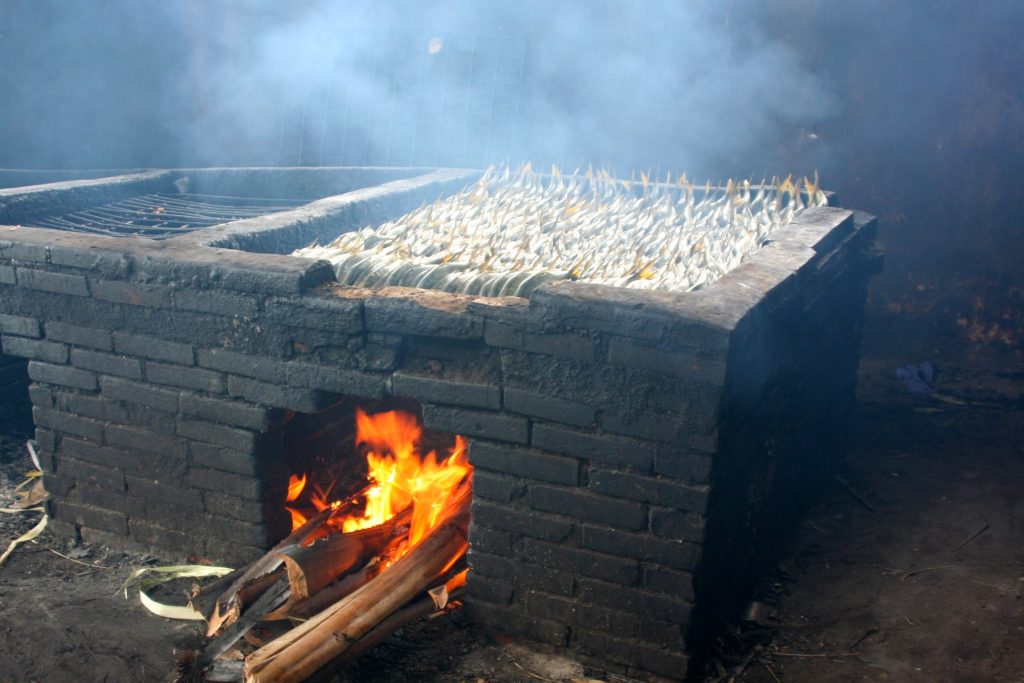By Vincent Ogo

July 14, 2021
Spoilage of agricultural commodities is common in The Gambia due to lack of adequate storage facilities. One of the affected areas is the fisheries sub-sector.
Fisheries is the third largest sector after agriculture and tourism and contributes 12 per cent to the country’s GDP. In addition, the livelihoods of over 200,000 Gambians are dependent on it and its related activities.
James F. Gomes, the Minister of Fisheries, Water Resources and National Assembly Matters, recently informed lawmakers about the bumper harvest of Sardinella fish locally known as “Yaiboye” at the Tanja landing site on 18th June 2021 which resulted in undesirable post-harvest losses.
He explained that the fish could not be sold by the women fish processors and other middlemen including those using refrigerated trucks for marketing and distribution up-country.
“The remaining fish could not be preserved due to lack of adequate ice because of electricity outage which resulted to the spoilage,” he also said.
It is rather surprising that such amount of fish was allowed to waste when there are facilities for drying fish in the country. If they are properly utilised, Gambia will not only cease experiencing post-harvest fish losses, but also earn valuable exchange through exporting dry fish like some countries in the sub-region.
According to a study sponsored by the Food and Agricultural Organisation (FAO) of the United Nations, the quantity of dried and smoked catfish, tilapia and other types of fish exported from West Africa to the United Kingdom was estimated at over 500 tonnes per year, with a retail value of nearly $20 million. Nigeria alone exports about 5 tonnes of smoked fish per month (via airfreight). Other major exporting countries are Ghana, the Ivory Coast, Senegal and Cameroun.
Exporting smoked fish to the US and Europe could have its bottlenecks, but that is not the only market Gambia products can go to.
The popular Gambian bonga fish has for decades been exported to countries like Ghana and Nigeria. In recent years other species like catfish in dried form have also been selling well in these countries.
A Nigerian once testified that smoked catfish from The Gambia is quickly sold off whenever it lands the country’s commercial city Lagos.
If Gambian fish traders keep encountering challenges related to preservation, smoking the fish and selling them to those who export them to neighbourng countries is a good option. Fish is too precious a resource to be allowed to spoil and go waste.

